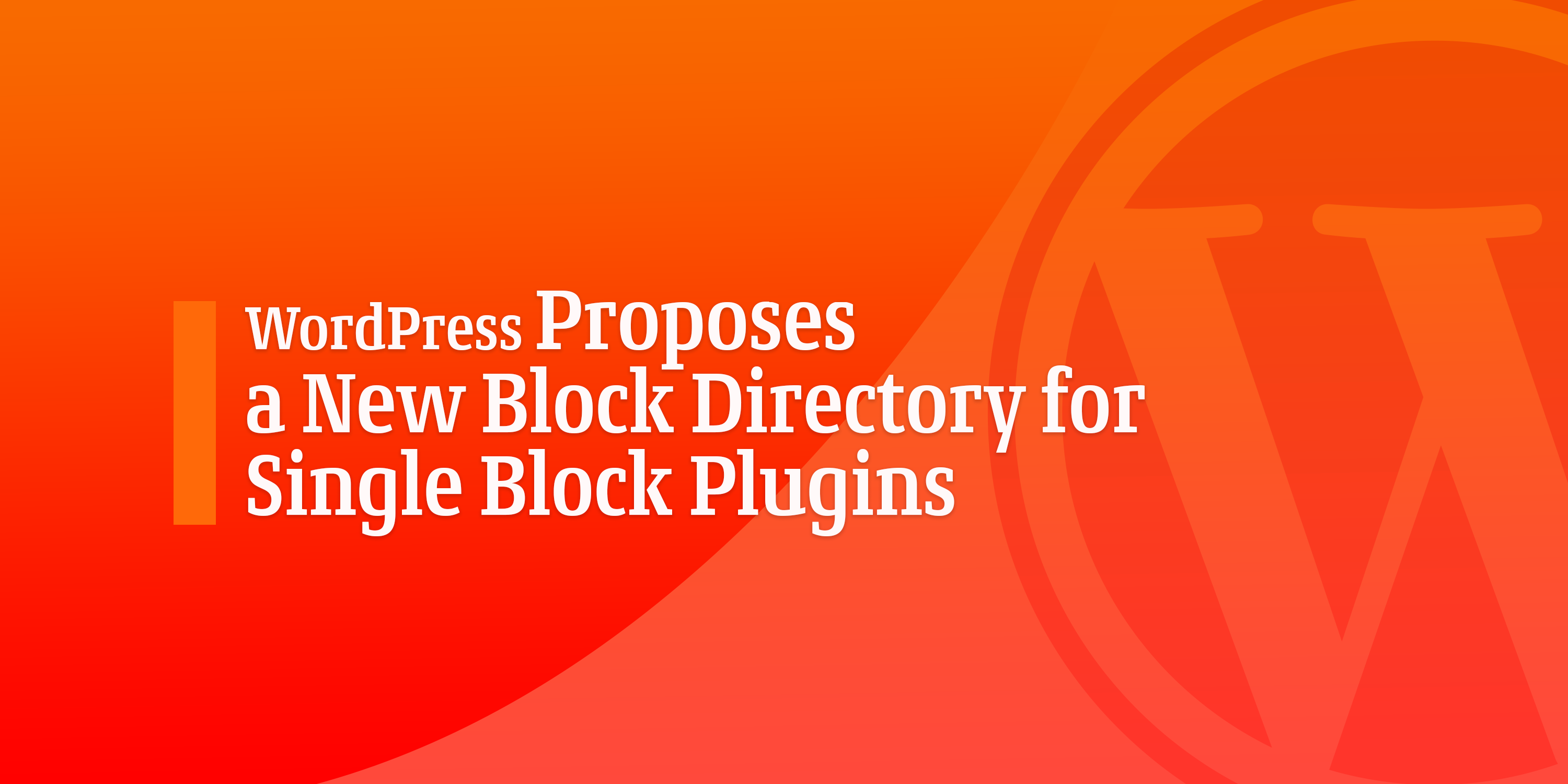Tiny Block Plugins! And a directory for all those tinies! That is the latest proposal made by WooCommerce via Alex Shiels, a Reverse Engineer at Automattic.
Being the largest website service in the world with a share of about 25% of the total websites, WordPress has a giant repository of their own to host plugins developed by different developers around the world. It already owns a block section in its plugin directory. Plans for improving this directory has been in discussion since long. But this time, they have come up with some serious thoughts and a much bigger and better proposal regarding a Block directory.
The Problems
Let’s go through some of the problems that WordPress points out to have a proper solution. The first of them: Although many plugins register Blocks,
their names or descriptions won’t give us a good indication about the Blocks. There also isn’t a way to search for the plugin with Block names.
Another issue that WordPress points out is that the distance between the blocks and installation of plugins is too much. As it is assumed, the developers are yet to start serious development of custom blocks instead of complete plugins. The reason is that the learning curve for developing blocks is a steep process, may it be for fresh developers or the old ones.
A Solution by WordPress
WordPress suggests a new genre of WordPress plugins as a solution for the above issue. These plugins will consist of only blocks, and that too single blocks. Alex calls them ‘Single Block Plugins’. These are JavaScript-based plugins which only register a single Block in a single plugin. You can host the Single Block Plugins inside the Block Directory which is a separate section of the Plugin Directory. You can search for these plugins from within the Gutenberg editor, install them, and add them.
Into the Detail
According to WordPress, a Single Block Plugin should be a small yet simple plugin that contains a single Gutenberg Block. Actually, the plugin itself is the Block. WordPress needs these plugins to adhere to the following rules:
- The plugin should register a Gutenberg block.
- They should be written in JavaScript
- They should be front-end plugins only.
- Their UI should be contained in Gutenberg Editor and nowhere else.
- The plugin should follow the Block Registration RFC and use a block.json file with metadata.
- The plugins should include a readme.txt and header metadata as required.
Although they introduced such a set of rules, these are not the final, as the exact rules are to be worked out soon with the help of top plugin developers and the Make WordPress Plugins community.
WordPress repeatedly reminds us that the Block Directory is a totally separate entity and will only contain Single Block Plugins. The directory will be different from the main plugins directory. If you are searching for regular plugins, you can search in the main plugins directory. Otherwise, for Single Block plugins, you’ll have to reach the Block Directory.
The Single Block Plugins can be searched by using the Block names or descriptions, as per Block Registration RFC regulations. You’ll also see a simplified version of the regular plugin page layout for Single Block plugin pages. WordPress will also provide an API endpoint to search with Block names and descriptions.
Although Single Block plugins are introduced, WordPress will allow regular plugins to continue registering Gutenberg Blocks. Only those Single Block plugins who follow the plugin rules will be eligible to be hosted in the Block Directory.
Other than the Single Block plugins, WordPress will then allow the search for regular plugins also by Block name and description. Such plugins with more than one Blocks need not follow the rules for Single Block plugins. They can also continue with their current developments including back-end coding, wp-admin user interface, and others.
In short words, WordPress means Single Block plugins just for the Blocks, and the regular plugins just for anything and everything.
A New Leap with a Bunch of Freebies
Even though WordPress stresses on a JavaScript-based development for the Single Block plugins, they allow the plugins to contain other assets like images and CSS. They should contain only a single PHP file with just the plugin headers and initialization code.
WordPress has also happily announced an onboard package of templates, samples, and other tools for new developers entering the WordPress JavaScript development. They expect that the installation of Blocks from within the editor will make the user experience seamless eventually, and attract more users to them. Engineers in WordPress are already involved in improving the Block management features which are on their way to the core.
Have A Look At Our Top Rated WooCommerce Plugins ThemeHigh

